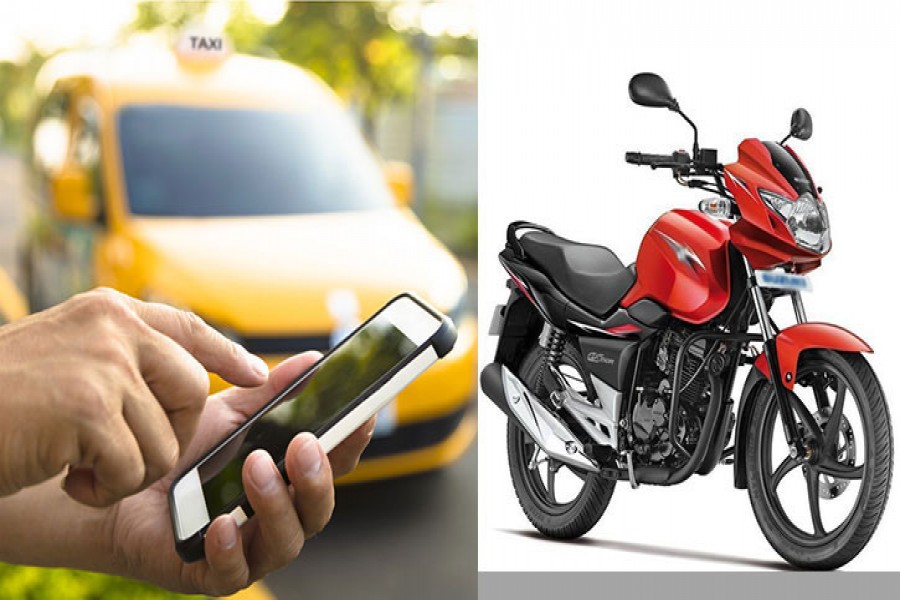The drivers of CNG (compressed natural gas)-run auto-rickshaws have threatened to go off the roads sometime next week unless the authorities stop operations of, what they said, unauthorised app-based ride-sharing services, a demand that has irked most commuters in cities like Dhaka and Chittagong.
Why are the auto-rickshaw operators, all on a sudden, have started opposing the app-based passenger services? The reason is that they are feeling the pinch because of growing popularity of the app-based transport services.
They have valid reasons to be alarmed by the growing popularity of the app-based services. More and more people are turning their back on the CNG auto-rickshaws and yellow cab services because of the easy availability of app-based ride-sharing services.
The auto-rickshaw owners have already appealed to the relevant ministry to stop, what they termed, unauthorised app-based services in the country. The auto drivers, who do have lot of complaints against the owners, too, have also become a part of the war against app-based services.
Commuters are increasingly being attracted to the app-based services because the latter are easily available, comfortable, cheaper and faster. They find yellow cabs far more expensive and difficult to avail.
The city residents have a load of complaints against the CNG-run auto-rickshaws. Drivers of most of the motorised three wheelers would defy rules and tend to charge their passengers more than what is due. They are reluctant to use meters and, on most occasions, refuse to go to destinations of passengers' choice. Some drivers even behave rudely with their passengers and, at times, are found involved in criminal activities.
The Dhakaites in particular are finding the app-based services, including Uber and Pathao, quite helpful. The services are available at their doorsteps anytime, even at midnight. The services prove to be safe and secure. More such services are reportedly in the offing. The addition of more operators is likely to make the services even cheaper.
Commuting in Dhaka remains a real problem. Beside severe traffic congestion, getting on board a transport proves to be very difficult on most occasions. The app-based services have emerged as a very effective solution to that problem.
It is obvious that vested interests would be alarmed by the entry of such services. Why would not they when similar opposition on their part turned out to be successful in the recent past? There are instances where the powerful section of bus operators having political connections forced the luxury or comfortable bus services on different routes of Dhaka city to withdraw. Even they did not allow the state-owned Bangladesh Road Transport Corporation (BRTC) to introduce air-conditioned buses on some of the city routes. The state of anarchy in the transport sector is all too evident to everyone.
The drivers of auto-rickshaws have announced that they too would soon introduce app-based services. On their part, they are likely to face some legal complications. But the commuters would welcome such a service if the operators concerned follow regulations and behave properly.
The Bangladesh Road Transport Authority (BRTA), reportedly, has prepared a guideline for the app-based transport services. It is expected that the guideline would be commuter-friendly, in terms of fare and safety issues. The commuters have reasons to be sceptical, for the relevant government agencies have always been more sympathetic to the cause of almost all parties barring the passengers of all modes of public transports. Hopefully, there will be an exception this time.


